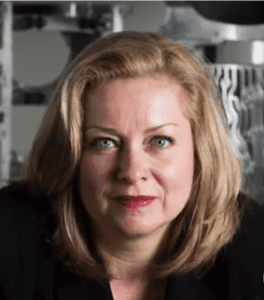Lakshmi Niwas Mittal
Lakshmi Niwas Mittal is an iconic Indian steel magnate, recognised worldwide for his business acumen and leadership. Known as the “Steel King,” Mittal stands as the chairman and CEO of ArcelorMittal, the world’s largest steelmaking company.
Early life
Lakshmi Niwas Mittal was born on June 15, 1950, in Sadulpur, Rajasthan, India. He hailed from a modest business family, with his father, Mohan Lal Mittal, running a small steel company. As a teenager, Mittal moved to Calcutta (now Kolkata) to join his father’s business, simultaneously pursuing a Bachelor of Commerce degree from St. Xavier’s College, Kolkata.
Born into a Marwadi Hindu family, Lakshmi Niwas Mittal spent his early years in a conducive academic environment. From 1957 to 1964, he attended Shri Daulatram Nopany Vidyalaya in Kolkata. Subsequently, he pursued a Bachelor of Commerce degree at St. Xavier’s College, an institution affiliated with the University of Calcutta, where he graduated with top honours.
Mittal’s father, Mohanlal Mittal, was the proprietor of Nippon Denro Ispat, a steel enterprise. However, in 1976, the Indian government’s restrictions on steel production compelled the ambitious 26-year-old Mittal to explore opportunities beyond national borders. He inaugurated his first steel factory, PT Ispat Indo, in Sidoarjo, East Java, Indonesia.
In a significant venture in 1989, Mittal took over the state-owned steel plants in Trinidad and Tobago, which were hemorrhaging money. Applying his strategic business acumen and innovative management techniques, he successfully transformed these loss-making units into profitable businesses within a year.
Career
Upon graduating, Mittal joined his father’s steelmaking business, Ispat. The business was fairly successful in India, but Lakshmi had grander aspirations. In 1976 he set up a steel factory in Indonesia, marking his first steps into the international steel market.
Until the 1990s, the primary assets of the Mittal family in India were a cold-rolling mill in Nagpur and an alloy steels plant situated near Pune. The current family venture, which includes a substantial integrated steel plant in the vicinity of Mumbai, is managed by Lakshmi Mittal’s younger siblings, Pramod and Vinod Mittal. However, Lakshmi is no longer involved with this enterprise.
In 1995, Mittal procured the Irish Steel plant located in Cork, Ireland, from the government for a token fee of IR£1. Yet, by 2001, the plant was shut down, leaving over 400 employees jobless. The plant’s environmental problems led to criticism and a legal battle. The Irish government unsuccessfully attempted to get Mittal’s company to share the €70 million clean-up cost of Cork Harbour.
Before December 2001, Mittal had acquired several assets, including Ispat Mexicana and his operation in Kazakhstan, Ispat Karmet. In the same month, he took over Sidex Galati, which was subsequently rebranded as Ispat Sidex.
The 1980s and 1990s saw Mittal’s career reach new heights as he started acquiring failing steel plants around the globe at bargain prices, notably in Trinidad and Tobago, Mexico, Canada, and Germany. Through innovative management techniques, he transformed these loss-making units into profitable enterprises, establishing a trend famously known as the “Mittal model.”
In 2004, Mittal achieved a significant milestone with the formation of Mittal Steel Company, which later became the world’s largest steel manufacturer. His greatest career achievement came in 2006 when Mittal Steel announced a $33 billion bid to acquire Arcelor, Europe’s top steel manufacturer. After a fiercely contested battle, the merger finally took place in 2007, creating ArcelorMittal, the world’s largest steel producer.
Sports
After witnessing India’s modest achievements in the 2000 and 2004 Summer Olympics, where the country only won a bronze and a silver medal respectively, Mittal felt compelled to take action. He established the Mittal Champions Trust, backed by a $9 million fund, aiming to support ten Indian athletes who showed great potential for global success. In a noteworthy gesture in 2008, he awarded Abhinav Bindra Rs. 1.5 crore (Rs. 15 million) for earning India its first individual Olympic gold medal in shooting. Furthermore, Mittal’s company, ArcelorMittal, supplied steel for the construction of the ArcelorMittal Orbit for the 2012 Summer Olympics.
For the charity initiative Comic Relief, Mittal matched the funds raised, approximately £1 million, during the celebrity special on the BBC programme, The Apprentice.
Mittal had been identified as a significant contender for purchasing Barclays Premiership clubs Wigan and Everton. However, on December 20, 2007, it was confirmed that the Mittal family had acquired a 20% stake in Queens Park Rangers football club, joining forces with Flavio Briatore and Mittal’s close associate Bernie Ecclestone.
This investment came with a board of directors seat for Mittal’s son-in-law, Amit Bhatia. This strategic move prompted speculation that Mittal was set to join the ever-increasing group of affluent individuals investing significantly in English football, following in the footsteps of benefactors like Roman Abramovich. On February 19, 2010, following Briatore’s resignation as QPR chairman, Ecclestone purchased additional shares in the club, becoming the primary shareholder.

Net Worth
As of 2023, Lakshmi Niwas Mittal’s net worth stands at $31 billion, as per Forbes’ estimates. His wealth comes primarily from his stakes in ArcelorMittal, his family’s massive steel and mining company, which operates in 60 countries and generates revenues in the tens of billions of dollars.
Achievement
Mittal’s achievements are numerous and notable. Here are some highlights:
Related Bios

Celestica Inc.
Headquartered in Toronto, Ontario in Canada, Celestica Inc. is a part-Canadian and part-American company widely viewed a...
Read More
Alan Zekelman
Alan Zekelman is the CEO of Zekelman Industries, one of the largest independent steel pipe and tube manufacturers in Nor...
Read More
Linda Hasenfratz
Linda Hasenfratz is an extremely talented and successful businesswoman, being the President, Chairman, and Chief Executi...
Read More
Social Profile
Mittal maintains a low-profile social presence. He rarely shares personal information and mainly uses social media to communicate his business achievements and philanthropic endeavours.